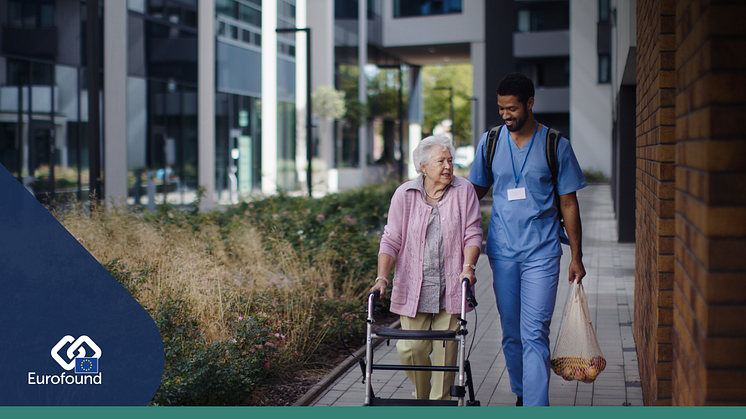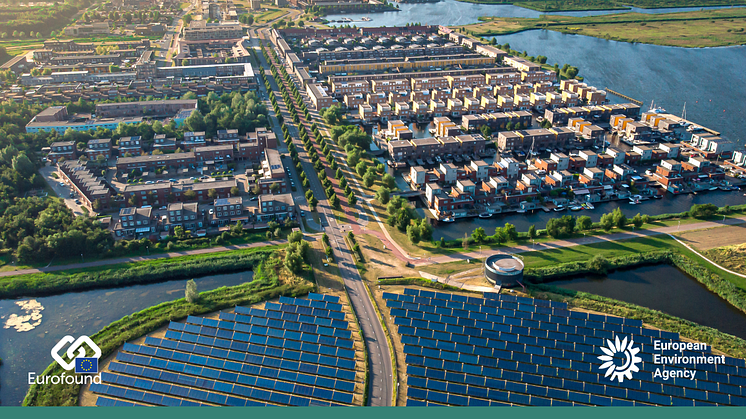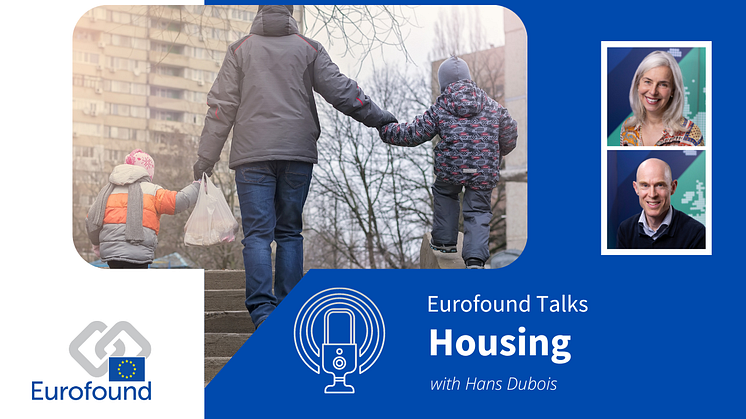Job insecurity undermines democracy
Workers on non-permanent contracts and workers with no formal contract are less satisfied with the functioning of democracy in their country, as are workers experiencing job insecurity.

Workers on non-permanent contracts and workers with no formal contract are less satisfied with the functioning of democracy in their country, as are workers experiencing job insecurity.

The EU’s financial commitment to social issues - with government spending on social services such as social protection, education and health claiming a significant 35% of GDP in 2020 - underpinned its resilience to the economic shock of the COVID-19 pandemic.

While some environmental indicators have improved across the EU, there are large inequalities between people at different income levels in Europe, with low-income populations drastically worse off in terms of the quality of their neighbourhood and housing.

Extreme temperatures in southern Europe have impacted workers’ health and resulted in industrial action in some EU Member States. Eurofound’s research shows that, already in 2015, 23% of workers in the EU were exposed to high temperatures during at least a quarter of their working time.

While losses in real minimum wages have occurred in several countries across the European Union, these have not eroded the long-term gains of purchasing power that have occurred across the EU since 2013. In an effort to offset inflation, governments have significantly increased nominal minimum wages across Europe. In 2023, the median nominal increase was almost 11%, compared with just 5% in 2

The move to a climate-neutral economy doesn't only represent risks and costs, but it has the potential to create exciting new opportunities with net employment gains, new business sectors and a healthier environment. Eurofound and the EEA have brought together EU level and regional experts and stakeholders to explore what these socioeconomic impacts could be and how policy could respond.

Focusing on prevention, and the strategic application of social support at the right time, is an important aspect of reducing evictions and ensuring citizens have affordable housing options in Europe.

People fleeing Russia’s invasion of Ukraine can seek jobs in Europe but not knowing the host country’s language and temporary job placements are just some of practical barriers identified in a new research paper from Eurofound and the EU Agency for Fundamental Rights (FRA).

Between 2012 and 2020, overall homeownership decreased across the EU, with decreases of more than 3 percentage points in Denmark, Cyprus, Spain, Lithuania, Finland and Bulgaria. This decrease was driven by declining ownership among young people and low-income groups.

The growth of platform work has highlighted its potential for those that require more flexible work arrangements but has also raised concerns about working conditions and exposing the vulnerability of platform workers with respect to access to safe working environments and social protection.

Eurofound's Living and working in Europe Yearbook 2022 looks at the major trends in employment, social dialogue, working conditions, living conditions and quality of life in an important year for Europe, which saw the beginning of Russia's brutal war of aggression against Ukraine, and the fallout for Europe and its citizens, including a cost-of-living crisis felt throughout the continent.

Eurofound’s new report looks at measures implemented at national level to tackle labour shortages in the health, care, and information and communication technology sectors, as well as those arising from the twin green and digital transition, to assesses what works and the contextual factors supporting or hindering effective policy implementation and outcomes.
